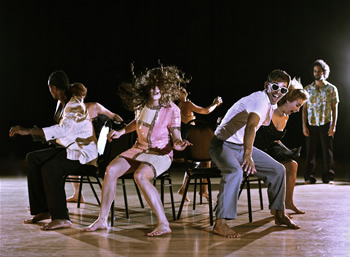In his thirteenth and final season with the Winston-Salem Symphony, Maestro Robert Moody led an orchestra of two dozen musicians and a similar-sized chorus and soloists in a slightly abridged Messiah by Georg Frideric Handel. Born the same year as J.S. Bach and Domenico Scarlatti (1685), Handel lived the last 40 years of his life in England, where he was much celebrated, especially for the 40-odd Italian operas he penned.
Messiah was composed at a time when King George II was protesting the secular opera as a form. Handel wrote and assembled this English-language masterpiece in less than a month when he was 57 years old, and supervised the premier performance in Dublin during the Lenten season before a very large audience, which immediately acclaimed the masterpiece.
Maestro Moody clearly loves this piece and enjoys conducting it. Apart from a couple of tempo changes reminiscent of the old Prout editions of the work, Moody’s view of the work was thoroughly contemporary; that is to say, it conforms to our best notions of the performance practices of Handel’s period. (Interesting that when he conducts without a baton, Moody exhibits a Gergiev-ian tremor in his left hand.)
Creating a stellar chorus of only 20 singers (which also included the singers of the various solo segments) allowed for some virtuosic tempos difficult to achieve with larger and less nimble choirs. However, acoustics being a major factor in determining tempo, the long reverberation time in the lovely stone Centenary Methodist Church was a blurring factor in several break-neck choruses (“And He shall purify…” and “For unto us a Child is born…”) as well as several of the solos where melisma (the stretching of a single vowel sound over many rapidly changing notes) was muddled and indistinct.
The dozen soloists were all excellent, but two stood out as exceptionally well-suited to their solos. Jodi Burns, soprano, sang a gorgeous “I know that my Redeemer liveth” and Nathan Milholin sang a powerful “The trumpet shall sound.” I look forward to hearing more from these artists. Brilliant antiphonal trumpets in the “Glory to God” chorus (Part I) and the rousing “The trumpet shall sound” reminded us that there are few trumpet-players to equal the Symphony’s Anita Cirba.
Adding the grand organ of Centenary to the closing “Amen” was a bold and dramatic gesture which added weight and a sense of finality to the closing. I did miss “The people who walked in darkness” from Part I and “O Death, where is thy sting” from Part III, both among the several cuts needed to make the length appropriate for a weekday evening.
In fact, Handel himself rewrote several of the solo parts as the soloists changed from performance to performance, occasionally transposing parts for contralto and counter-tenor (a male contralto voice) or rewriting a 4/4 solo as a 12/8 with an appropriate lilt. Consequently, there is no Urtext or definitive version of the work. And no less than Wolfgang Amadeus Mozart re-orchestrated the work in a 1789 German version, Der Messias, adding woodwinds and horns to Handel’s sparse orchestration of strings, oboes, continuo and occasional trumpets and timpani.
It is this Mozart version that originally gave rise to the 85-year-old tradition in Winston-Salem, started by the Mozart Club, of presenting annually a popular community-based and free Messiah on the first Sunday of December. When Maestro Moody decided ten years ago that the Winston-Salem Symphony should also perform the work annually, more than a few feathers were ruffled, but now that time has calmed passions, it is enriching that there should be two annual versions of the work.











